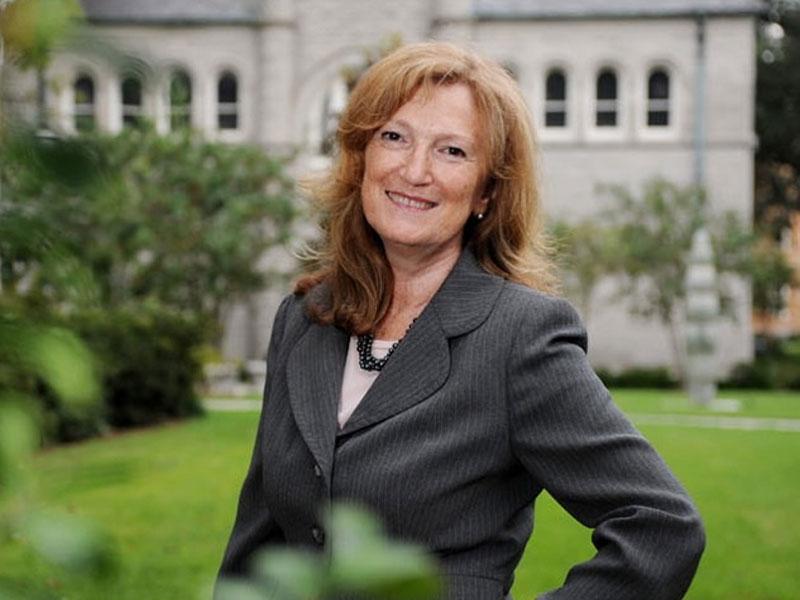Tulane’s Commitment to Equity Institute wins grant to study COVID’s effects on inequality
Tulane University’s Commitment to Equity Institute (CEQI) has received almost $1.2 million from the Bill & Melinda Gates Foundation to assess how the COVID-19 pandemic and resulting fiscal policies have affected inequality, poverty and mobility. The award will fund research to help shape more equitable outcomes in developing countries.
Based in the Department of Economics within the School of Liberal Arts, the project, “Measuring Fiscal Equity in the Post-COVID-19 World,” is being led by Nora Lustig, PhD, the Samuel Z. Stone Professor of Latin American Economics and the CEQI’s founding director. The primary co-investigator is Ludovico Feoli, PhD, a research professor in the Department of Political Science and the Stone Center for Latin American Studies. Feoli is also the executive director of the Center for Inter-American Policy and Research (CIPR), which is co-sponsoring the project.
The CEQI will gauge how the pandemic is affecting the world’s most vulnerable populations over the short and long terms and will develop methodologies, software tools and datasets to guide policymakers toward crafting more equitable responses to the crisis. Lustig, her Tulane team and outside partners will complete the work by March 2023.
“Nora Lustig is an internationally renowned scholar of global inequality, and now — thanks to the Gates Foundation — she is applying her groundbreaking methods to a crisis that has gripped the world for more than a year."
Brian Edwards, dean of the Tulane School of Liberal Arts
“The pandemic has worsened global poverty, disrupted the income and education of countless people worldwide, reduced the gross national product of countries and fueled rising deficits as governments borrow and spend money to mitigate the damage,” Tulane University President Michael A. Fitts said. “With the support of this generous grant, Tulane will take a leading role in understanding these impacts and provide leaders with the best information to both address these present challenges and reduce the likelihood of their reoccurrence in future global health crises.”
“Nora Lustig is an internationally renowned scholar of global inequality, and now — thanks to the Gates Foundation — she is applying her groundbreaking methods to a crisis that has gripped the world for more than a year and will reverberate for decades,” said School of Liberal Arts Dean Brian Edwards. “This grant seeks to influence policies so that people living in poverty won’t have to bear the disproportionate brunt of the recovery costs, but instead will have a fair chance to emerge with hope for a brighter future.”
Lustig said the foundation’s support greatly advances her research. “With this new grant, the foundation will enable us to continue expanding the methodological frontiers to assess the impact of taxation and government spending on inequality, poverty and intergenerational mobility,” Lustig said. “We will assess how taxes and government spending reduce poverty in dimensions beyond income such as health, education and infrastructure and measure how fiscal policy can reduce or exacerbate inequality between genders. In addition, the new research will shed light on how to reform taxes and transfer programs to mitigate the inequities left by COVID-19 using policy-friendly microsimulation tools.”
Founded in 2015, the CEQI works to reduce inequality and poverty through a technique called fiscal incidence analysis, which uses household incomes and other data to measure how government taxation and spending affect the residents of a particular country. Findings for more than 70 nations are available at its online data center. Its methodology, freely available in the CEQ Handbook, is used by organizations such as the International Monetary Fund and the World Bank.
The CEQI has played a significant role in influencing policymakers, with its fiscal redistribution indicator serving as the official indicator for the U.N. Sustainable Development Goal 10 on reducing inequalities. The CEQI has also created numerous opportunities for the academic and professional growth of Tulane students and alumni.
All these successes have been possible “thanks to the generous support of the Gates Foundation since 2013,” Lustig said.
The foundation’s grant will also help fund a seminar series at Tulane on public policy and equity, with coverage of the new chapters in its forthcoming updated CEQ Handbook and the research results from the foundation-funded project.
Guided by the belief that every life has equal value, the Bill & Melinda Gates Foundation works to help all people lead healthy, productive lives. In developing countries, it focuses on improving people's health and giving them the chance to lift themselves out of hunger and extreme poverty. In the United States, it seeks to ensure that all people — especially those with the fewest resources — have access to the opportunities they need to succeed in school and life. Based in Seattle, Washington, the foundation is led by CEO Mark Suzman, under the direction of Bill Gates, Melinda French Gates and Warren Buffett.

